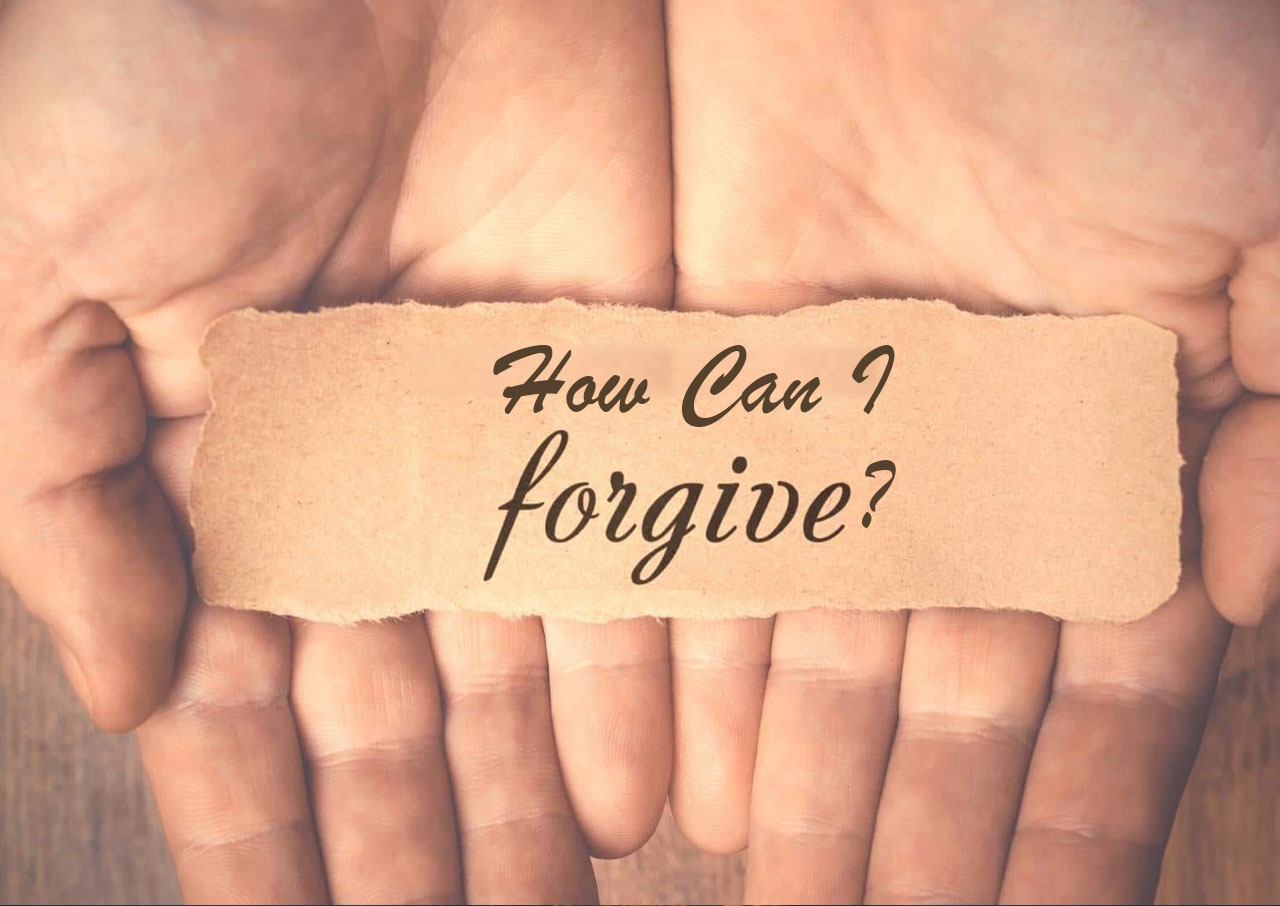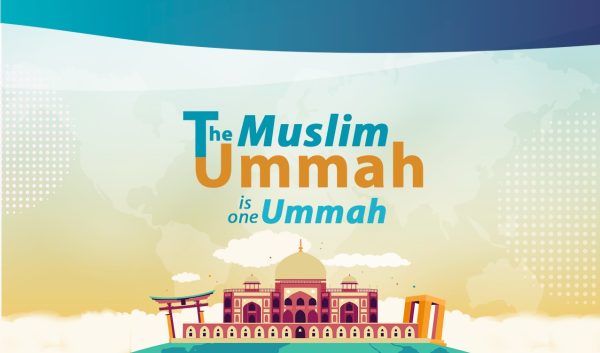As an intro to this article, I really do not want to create a big prologue. I want to just dive into this profound aspect that Deen teaches us over and over again. Forgiveness. Why can’t we just forgive people? Why can’t we just help ourselves and move on? We continue to hold on to the misery of the pain, of the grief and of that what hurt us in that moment in time when it happened and continues to hurt us as we relive the pain in continuity only because that has become our comfort zone. We restrain ourselves from moving on. We actually ourselves do not want to move on.
Islam teaches us to let go. It teaches us to rise above all things that are futile, bring our energy down and pull us back. We look at the Seerah and see how much hurt and pain was caused to our beloved Prophet ﷺ. The Qur’an and narrations of hadith are filled with evidence of how he suffered on account of people.
وَمِنْهُمُ الَّذِينَ يُؤْذُونَ النَّبِيَّ وَيَقُولُونَ هُوَ أُذُنٌ ۚ قُلْ أُذُنُ خَيْرٍ لَّكُمْ يُؤْمِنُ بِاللَّهِ وَيُؤْمِنُ لِلْمُؤْمِنِينَ وَرَحْمَةٌ لِّلَّذِينَ آمَنُوا مِنكُمْ ۚ وَالَّذِينَ يُؤْذُونَ رَسُولَ اللَّهِ لَهُمْ عَذَابٌ أَلِيمٌ
And among them are those who abuse the Prophet and say, “He is an ear.” Say, “[It is] an ear of goodness for you that believes in Allah and believes the believers and [is] a mercy to those who believe among you.” And those who abuse the Messenger of Allah – for them is a painful punishment.
[At-Tawbah: 61]
The disbelievers made derogatory remarks to him ﷺ saying that he listened to everyone and believed everything he heard. He was naive and a simpleton. They said it intentionally to him ﷺ so he could hear it and feel terrible about it. People do this to us all the time to us all. They walk all over us, step into our boundaries and say inappropriate things and justify their wrong actions.
We hurt because of what has been said to us. They say words are harsher than actions and that may be true for many. Whenever someone says something to have caused you pain, think about how your Prophet ﷺ did his noble duty to spread Islam and yet people disliked him. He was the chosen Prophet. He was just doing what he ﷺ had been selected for. These are instances when Allah (عَزَّوَجَلَّ) advised him and counselled him ﷺ. And the same counselling is directed towards us.
فَلَا يَحْزُنكَ قَوْلُهُمْ ۘ إِنَّا نَعْلَمُ مَا يُسِرُّونَ وَمَا يُعْلِنُونَ
So let not their speech grieve you. Indeed, We know what they conceal and what they declare.
[Yasin: 76]
We learn, the way of the Prophet ﷺ was not reactive. He did not pick fights or stand tall with broadened shoulders to justify his position. He ﷺ walked away and let go. He ﷺ created that space for himself as well as for others to reflect on the reality. He ﷺ found no need to indulge into their frivolous acts or words and stoop low like them. Two wrongs do not make a right. This is the approach of a person who is content with his Rabb. This is the person whose focus is Jannah. We must try to practice this for our Deen as well as our duniya.
Hurt weighs us down. Hurt pulls us back. All of this leads to cases of down-time and depression. At times, it stifles us and makes us dysfunctional. People will continue to do injustice and say things that are not true. Tell yourself, ‘It is not important and they are not important.’
In fact practice this:
ادْفَعْ بِالَّتِي هِيَ أَحْسَنُ فَإِذَا الَّذِي بَيْنَكَ وَبَيْنَهُ عَدَاوَةٌ كَأَنَّهُ وَلِيٌّ حَمِيمٌ
Repel [evil] by that [deed] which is better; and thereupon the one whom between you and him is enmity [will become] as though he was a devoted friend.
[Fussilat: 34]
Be extra nice to the ones who have wronged you and the one who have taken away your right.
This is especially relevant for family because at times it is our own families that cause us pain. Maybe they are envious and unhappy with us or we have given them the right to say and do things to us we will not allow others. Whatever the case may be, ironically, our own families sometimes say the things that seem unforgivable at the time.
Practicing the above verse, will not only bring you closer to Allah (عَزَّوَجَلَّ), but He will ensure that whatever you have been deprived of, you will be compensated for it. If not in this world, then definitely the Hereafter. Know that everything is accountable for. Yet, at the same time, worry that we may have also wronged others. So be wary of that and ask for forgiveness for yourself.
We know from the Seerah that Abu Lahab was the paternal half-brother of the Prophetﷺ. Despite being his closest relative, he showed relentless animosity and rejected the Prophet ﷺ. Abu Lahab openly condemned his own nephew’s teachings of Islam and warned people against him. One wonders, how can your own family do that? Yet, it has happened and it will continue to happen. We forgive and we let Allah (عَزَّوَجَلَّ) decide matters between us. We practice the highest form of decency that Islam has taught us following the footsteps of our Prophet ﷺ. That is the demeanor of someone who knows they have to return back to Allah (عَزَّوَجَلَّ).
We have another example from the Qur’an in Surah Yusuf of how families are the ones to cause pain and grief. Surah Yusuf as mentioned in the Qur’an, the best of the narrations:
نَحْنُ نَقُصُّ عَلَيْكَ أَحْسَنَ الْقَصَصِ
We relate to you, [O Muhammad], the best of stories
[Surah Yusuf: 3]
Yusuf (عَلَيْهِ ٱلسَّلَامُ) faced sibling rivalry at a very young age. It was rather sibling enmity that led to extreme actions taken against him of being thrown into the well and left to die. Yusuf (عَلَيْهِ ٱلسَّلَامُ), when he finally faces those brothers who have done him wrong, what does he do? Does he react or start accusing of how injustice has been done upon him? He does not. He hides his emotions. He does not disassociate from them. Rather he puts them aside by saying your thinking is wrong and he diverts the energies towards Allah (عَزَّوَجَلَّ):
فَأَسَرَّهَا يُوسُفُ فِي نَفْسِهِ وَلَمْ يُبْدِهَا لَهُمْ ۚ قَالَ أَنتُمْ شَرٌّ مَّكَانًا ۖ وَاللَّهُ أَعْلَمُ بِمَا تَصِفُونَ
But Yusuf kept it within himself and did not reveal it to them. He said, “You are worse in position, and Allah is most knowing of what you describe.”
[Surah Yusuf:77]
Yusuf (عَلَيْهِ ٱلسَّلَامُ) was not naive. He conveyed that what his brothers were doing was not right and he said it with assertiveness and clarity. He said it without being emotional and said only what was to be said. This is maturity and putting things in perspective. This is patience. Allah (عَزَّوَجَلَّ) then informs us
إِنَّهُ مَن يَتَّقِ وَيَصْبِرْ فَإِنَّ اللَّهَ لَا يُضِيعُ أَجْرَ الْمُحْسِنِينَ
Indeed, he who fears Allah and is patient, then indeed, Allah does not allow to be lost the reward of those who do good.”
[Surah Yusuf: 90]
That is the reward that is offered for those who do not create drama, despite knowing the manipulation of others. What is the reward? Allah (عَزَّوَجَلَّ) will set matters right for you, in ways you least expect it. You will be content while your enemies will be left restless.
Moreover, Yusuf (عَلَيْهِ ٱلسَّلَامُ) when things have finally been made right for him by Allah (عَزَّوَجَلَّ) and he is in a position to take revenge, to say something harsh, he says:
قَالَ لَا تَثْرِيبَ عَلَيْكُمُ الْيَوْمَ ۖ يَغْفِرُ اللَّهُ لَكُمْ ۖ وَهُوَ أَرْحَمُ الرَّاحِمِينَ
He said, “No blame will there be upon you today. Allah will forgive you; and He is the most merciful of the merciful.”
[Yusuf: 92]
He forgives them! He has forgiven them for trying to kill him, for the years of separation from the father and for all the lies and plots carried out against him.
We see this implemented by RasulAllah ﷺ. On the Conquest of Makkah, when the keys of the Kaabah are handed over to the Prophet ﷺ, he prayed and he broke the idols. On the day of Conquest of Makkah, even Abu Sufiyan, who was sure than he will not be forgiven, was forgiven by the Prophet ﷺ.
The Messenger of Allah ﷺ addressed the people of Makkah and said,
“Today I will speak to you as Yusuf spoke to his brothers. I will not harm you and Allah will forgive you for He is Merciful and Loving. Go you are free.”
(Ref: Ibn Kathir and Ibn Al-Hajjaj Muslim)
This by far ego-balancing and being level-headed as many psychologists and theorists have written theories upon theories of. Qur’an and the Messengers of Allah (عَزَّوَجَلَّ) have shown us in practicality how it is to be done. Let’s follow the way of the Messengers, of our beloved Prophet ﷺ and the teachings of Qur’an when dealing with people who have hurt and wronged us. Not only will we get the ajr (reward), we will get better outcomes in situations. Let’s practice forgiveness by letting go of the hurt, of relieving ourselves of the pain and putting all matters with Allah (عَزَّوَجَلَّ).











